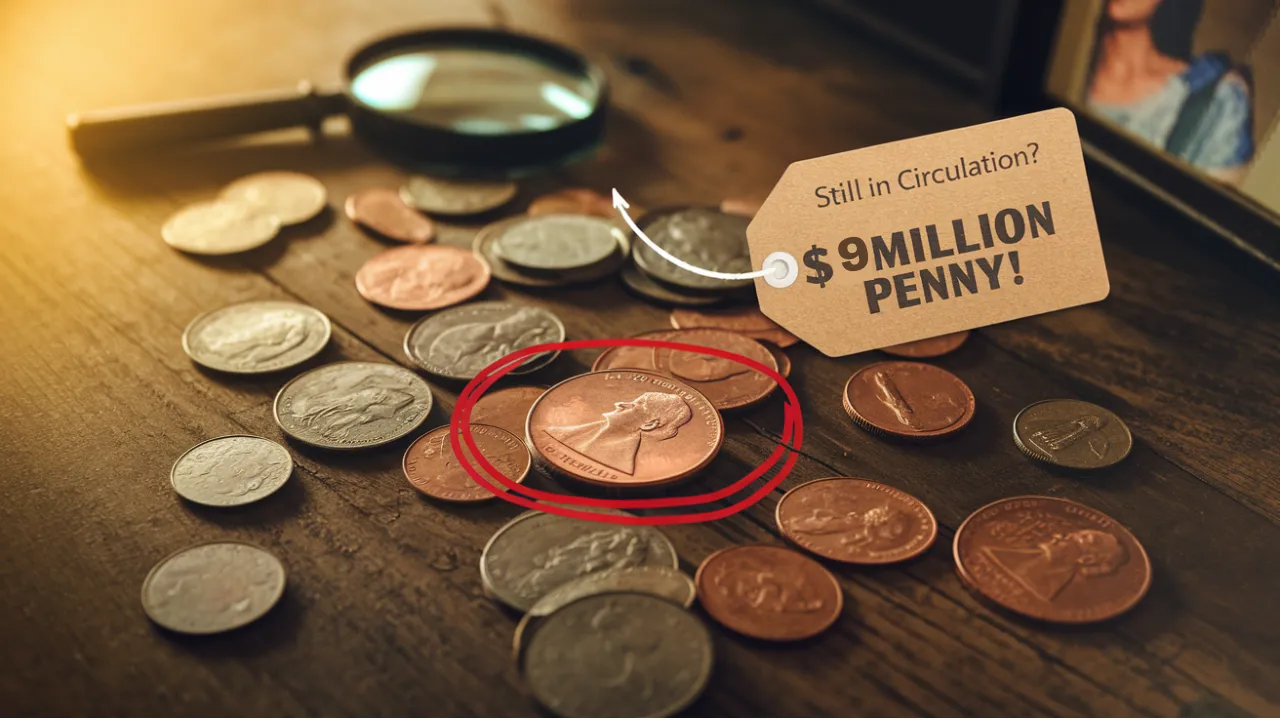Imagine finding a penny in your change worth $9 million! The Lincoln Wheat Penny, a small coin with a big story, has captured the hearts of collectors. Some rare versions could still be hiding in circulation. Ready to learn about this treasure? Let’s dive in!
What Is the Lincoln Wheat Penny?
The Lincoln Wheat Penny, or Wheat Cent, is a one-cent coin minted from 1909 to 1958. It features Abraham Lincoln’s portrait on the front and two wheat stalks on the back. Some rare versions, like the 1943 bronze penny, are worth millions due to minting errors.
History of the Lincoln Wheat Penny
Introduced in 1909 to honor Lincoln’s 100th birthday, the coin was designed by Victor David Brenner. It was the first U.S. coin to feature a president. During World War II, copper shortages led to steel pennies in 1943, but a few bronze errors slipped through, making them legendary.
| Year | Key Event |
|---|---|
| 1909 | First Lincoln Wheat Penny minted |
| 1943 | Steel pennies introduced; rare bronze errors created |
| 1958 | Last year of Wheat Penny production |
Why Is It So Valuable Today?
Rare Lincoln Wheat Pennies, like the 1943 bronze cent, are prized for their scarcity. Only 15–20 are known to exist, driving values up to $9 million for pristine examples. Their historical significance and minting errors make them a collector’s dream, fueling demand at auctions.
How to Spot a Rare Lincoln Wheat Penny
Think you’ve found a treasure? Check your pennies for these signs:
- Date and Mint Mark: Look for 1943 with a “D” (Denver) or no mark (Philadelphia).
- Material: Bronze pennies don’t stick to magnets; steel ones do.
- Condition: Uncirculated coins with red luster fetch the highest prices.
Get suspect coins graded by PCGS or NGC to confirm authenticity and value.
| Feature | Common Penny | Rare 1943 Bronze |
|---|---|---|
| Material | Steel (1943) | Bronze |
| Mint Mark | D, S, or none | D or none |
| Value | $0.01–$0.10 | Up to $9M |
Notable Lincoln Wheat Penny Records
The 1943 bronze penny is the star, with one selling for $1.7 million in 2010, now valued at up to $9 million. Other key dates include the 1909-S VDB ($258,000) and 1958 Double Die ($224,831). These coins are numismatic legends!
Expert Tips for Coin Collectors
- Examine Change: Check pocket change or old jars for Wheat Pennies.
- Avoid Cleaning: Cleaning coins reduces value; keep them untouched.
- Join Communities: Connect with collectors on forums like CoinTalk.
- Study Guides: Use “The Red Book” for accurate valuations.
- Authenticate: Always verify rare finds with professional grading services.
Frequently Asked Questions
Q: Are all Lincoln Wheat Pennies valuable?
A: Most are worth a few cents, but rare errors like the 1943 bronze can be worth millions.
Q: How do I know if my penny is bronze?
A: Test with a magnet. Bronze pennies won’t stick; steel ones will.
Q: Where can I sell a rare penny?
A: Auction houses like Heritage Auctions or reputable coin dealers are best.
Conclusion
The Lincoln Wheat Penny is more than pocket change—it’s a piece of history with potential millions in value. From the rare 1943 bronze to the iconic 1909-S VDB, these coins spark excitement in collectors. Check your change, learn the signs, and maybe you’ll find a fortune! Share this post or join a coin club to start your treasure hunt today.

